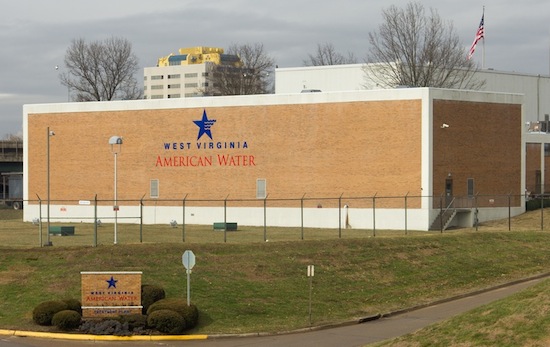
There is a lesson in West Virginia’s water crisis for North Carolina policymakers and regulatory agencies akin to the saying that those who do not learn from history are doomed to repeat it. If you look at the changes to and by the N.C. Department of Environment and Natural Resources in 2013 and the path ahead in 2014, the General Assembly seems resolved to run headlong down a shortsighted path that will lead to the same inevitable consequences.
Monthly Archives: January 2014
The West Virginia Chemical Spill: A Warning for North Carolina
A Successful First Energy Savings Session in Sugar Grove, N.C.

On Jan. 9, Watauga County residents left the Sugar Grove Community Center equipped and inspired to make their homes more energy efficient. We’re excited to continue hosting Energy Savings Information Sessions throughout western North Carolina and East Tennessee.
West Virginia’s Water Crisis: As Predictable As It Was Preventable

On Thursday, Jan. 9, more than 7,500 gallons of a highly toxic chemical used to process coal spilled into the Elk River — just upstream of a drinking water intake serving more than 300,000 people in West Virginia. While the spill was making national headlines as a one-time event, our thoughts turned to the much bigger problems with water pollution and politics in Appalachia that don’t get enough attention from the media — and how these chronic problems actually set the stage for this disaster.
Who Owns West Virginia’s Water? A Cautionary Tale

The paper trail of West Virginia Public Service Commission filings document the dramatic expansion of American Water Company’s network over the past two decades, and why so many people in this water-rich state depend on a single, privately-owned treatment system and distribution network that sprawls across nine counties for their supply of drinking water.
Local Groups Seek Clean Up of Duke’s Coal Ash Pollution Across North Carolina
Contact: Frank Holleman, Senior Attorney with a focus on litigation, 919-967-1450 Kathleen Sullivan, Senior Communications Manager, 919-967-1450 Representing: Appalachian Voices – Amy Adams, 828-262-1500 Cape Fear River Watch – Kemp Burdette, 910-762-5606 Upper Neuse Riverkeeper – Matthew Starr, 919-856-1180 Waterkeeper…
Will West Virginia Politicians Hit “Snooze” on Another Wake-Up Call?

West Virginia’s state and federal leadership fight tooth-and-nail against new rules and the enforcement of existing laws that protect our air, water and health because the earnings of companies bankrolling their political careers might be affected. Now, facing another crisis, we’re rightfully wondering: How many wake-up calls do West Virginia’s elected leaders get?
Former Coal Regulator Shows How Little He Knows About Coal Regulation

More than 2,000 miles of Appalachian streams have been buried or poisoned by the valley fills associated with mountaintop removal mining. Yet, despite touting his credentials as a former coal regulator, Rep. Kevin Cramer (R-ND) believes that current stream protections are sufficient and dumping mining waste into streams is illegal.
West Virginia Chemical Spill Has Deeper Implications for Safety of Drinking Water
PRESS STATEMENT Contact: Matt Wasson, Program Director: 828-262-1500 Cat McCue, Communications Director: 434-293-6373 News reports of Thursday’s spill of a coal-processing chemical into West Virginia’s Elk River — and emergency orders to thousands of people to not drink or use…
McAuliffe Lauds Carbon Capture Technology, But Coal’s Impacts Go Beyond CO2 Pollution

Virginia Governor-elect Terry McAuliffe claims that “we need to build on the assets we have” by using carbon capture technology. But carbon pollution isn’t the only measure of coal’s impact on Virginia. Continuing to mine and burn coal will still cause serious problems: more destructive mountaintop removal, toxic mining waste, air and water pollution from power plants, all while southwestern Virginia continues to feel the worst effects of deferring a cleaner energy future.
The War on Poverty at 50

On this day 50 years ago, President Lyndon Johnson sat on a front porch of a weary-looking eastern Kentucky home and declared war on poverty. At the time, one in three Appalachians were considered poor. The poverty rate in the region is now closer to the national average — 16.1 percent in Appalachia compared to 14.3 percent nationally — but, as you might suspect, those statistics tell only part of the story. Economic disparities between Appalachian counties and sub-regions remain high, and, as it was in 1964, eastern Kentucky remains a focal point.

